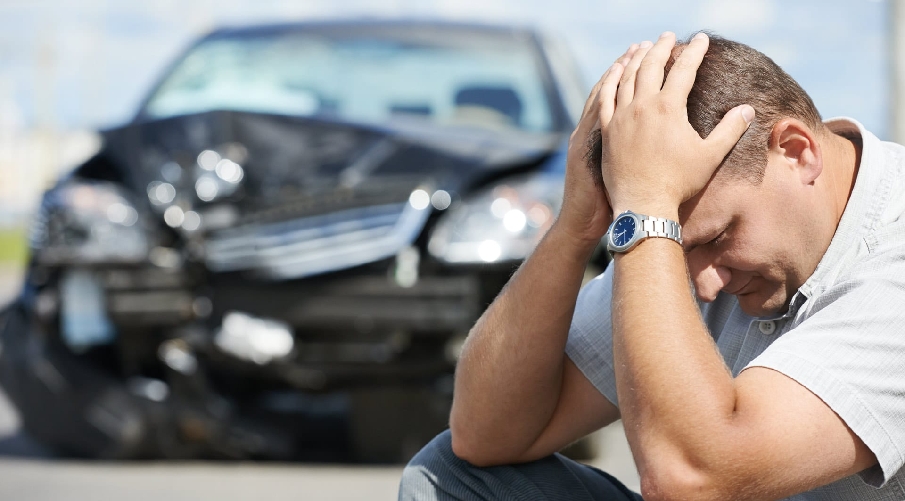Car accidents can have a significant impact on an individual’s emotional wellbeing.
Even if there are no serious physical injuries, individuals may experience a range of emotional reactions.
It is essential to recognize and address these emotions to avoid long term effects.
This article will provide information on the common emotional reactions after a car accident, coping strategies, signs that may indicate professional support is necessary, resources available, and tips for providing emotional support to someone after a car accident.
Coping With the Aftermath After A Car Accident:

Common Emotional Reactions After A Car Accident:
According to a study by the National Center for Biotechnology Information (NCBI), approximately 39% of individuals involved in car accidents develop psychological distress symptoms.
These symptoms can include anxiety, fear, shock, anger, guilt, and confusion.
Individuals may also experience physical effects such as headaches, nausea, insomnia, and fatigue.
For some individuals, these symptoms may last for a few days or weeks, while others may develop Post Traumatic Stress Disorder (PTSD).
PTSD is a mental health condition that develops after experiencing or witnessing a traumatic event.
Symptoms of PTSD may include flashbacks, nightmares, avoidance behavior, and emotional detachment.
Coping Strategies After A Car Accident:
It is crucial to seek help when experiencing emotional distress after a car accident.
There are several coping strategies that individuals can use to manage their emotions, such as talking to a trusted friend or family member, practicing mindfulness or meditation, and engaging in physical activity.
Individuals can also seek professional help from a mental health professional, such as a therapist or counselor.
A mental health professional can provide coping strategies and help individuals work through their emotions.
Signs of Professional Emotional Support:
Some individuals may require professional emotional support after a car accident.
Signs that may indicate professional help is necessary include prolonged feelings of sadness, anxiety, or fear, the inability to perform daily activities, changes in sleeping or eating habits, and the use of drugs or alcohol to cope with emotions.
Resources Available for Emotional Support:
After a car accident, individuals may require emotional support to cope with the physical and emotional trauma they have experienced.
There are various resources available for individuals seeking emotional support, and these resources can vary in accessibility, cost, and type of support provided.
Additionally, car accident attorneys can provide referrals to mental health professionals who specialize in trauma and car accidents.
Here are some of the most common resources available for emotional support after a car accident…
Support Groups:
Support groups bring together individuals who have experienced similar trauma, such as car accidents.
They can provide a safe and supportive environment for individuals to share their experiences, emotions, and coping strategies.
Support groups can be in person or online and can be facilitated by mental health professionals or volunteers.
Online Forums:
Online forums provide a space for individuals to connect with others who have experienced similar trauma.
They can be helpful for individuals who may not have access to in person support groups or prefer to connect with others anonymously.
Online forums can be accessed through social media platforms or specific websites.
Hotlines:
Hotlines offer immediate emotional support to individuals who may be experiencing distress.
These hotlines are usually staffed by trained volunteers or mental health professionals and are available 24 hours 7 days per week.
Individuals can call or text these hotlines for emotional support and crisis intervention.
Mental Health Professionals:
Mental health professionals, such as therapists, psychologists, and counselors, specialize in providing emotional support and treatment for individuals experiencing mental health conditions.
They can provide coping strategies, emotional support, and therapy for individuals experiencing emotional distress after a car accident.
Check our database of coaches and mental health professionals here.
Car Accident Attorneys:
Car accident attorneys can provide referrals to mental health professionals who specialize in trauma and car accidents.
They can also offer legal support and guidance for individuals seeking compensation for physical and emotional injuries sustained in a car accident.
It is essential to find a resource that is accessible, affordable, and effective for each individual’s unique needs.
While some individuals may find support groups or online forums helpful, others may require more intensive therapy and mental health treatment.
It is also important to note that emotional support may be an ongoing process, and individuals may require different types of support at different stages of their recovery.
Tips for Providing Emotional Support to Someone After A Car Accident:
Friends and family members can play a vital role in providing emotional support to individuals who have experienced a car accident.
It is essential to listen to the individual’s feelings and avoid minimizing their emotions.
Individuals can also encourage their loved ones to seek professional help and provide support during this process.
Coping with the aftermath of a car accident requires recognizing and addressing the emotional impact it can have on an individual.
Common emotional reactions may include anxiety, fear, and confusion, and coping strategies such as seeking professional help, talking to a trusted friend or family member, and practicing mindfulness can help manage these emotions.
Signs that may indicate the need for professional emotional support include prolonged feelings of sadness, anxiety, or fear, changes in sleeping or eating habits, and the use of drugs or alcohol to cope.
There are various resources available for emotional support, such as support groups, online forums, and hotlines, and car accident attorneys can provide valuable resources to individuals seeking emotional support after a car accident.
Friends and family members can also provide emotional support by listening and encouraging their loved ones to seek help.
To further your knowledge on this topic, you may want to consider exploring the legal aspects of car accidents and personal injury claims.
It may also be beneficial to learn about other coping strategies for managing emotional distress, such as cognitive behavioral therapy and medication.
By understanding the emotional impact of car accidents and the resources available for support, individuals can take steps towards healing and recovery.






